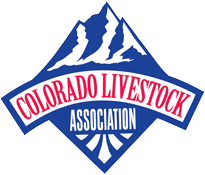It’s that time of year again when invasive European starlings congregate in feedlots and dairies during winter and consume and contaminate feed and can potentially transmit harmful diseases to livestock. USDA-Wildlife Services (WS) has developed a program to reduce the damage caused by starlings at dairies and feedlots. If requested, WS can make a site visit to determine the severity of damage and provide recommendations to the producer on how to reduce the amount of damage. In addition, WS can use the toxicant DRC-1339, a restricted use pesticide applied by licensed applicators, to expediently reduce the number of starlings at your operation. Starlings are sensitive to DRC-1339 while mammals and hawks are generally resistant. Therefore, hazards to non-target animals are extremely low.
The key to a successful management project is good bait acceptance. WS will pre-bait for about 3-10 days with a high fat, high protein feed and get the starlings accustomed to feeding in an alley or separate feed bunk. After they consistently feed on the bait, WS will apply a limited amount of bait that has been treated with DRC-1339 at the same location where the untreated bait has been placed. Where satisfactory bait acceptance has been established, reductions of 75% to 95% can be achieved in most cases.
WS will be on-site to monitor the project and remove treated bait at the end of the day. Because there are several hours between the time the toxicant is consumed and when starlings die, it is very possible that many of the starlings will die off-site. WS will advise the local health departments, law enforcement, and county extension agents that the dead starlings pose no hazard to people or pets because the toxicant is quickly metabolized and excreted prior to the death of the starlings. WS will return the day after treatment to remove any dead starlings from the property and any neighboring properties, if requested. Unfortunately, we cannot guarantee results, however we do work with other dairies and feedlots in Colorado and have received some positive feedback! If you have any questions regarding this program please contact USDA Wildlife Services at 303-859-0399 or email Kendra.B.Cross@usda.gov.
Image Source: Progressive Cattlemen
